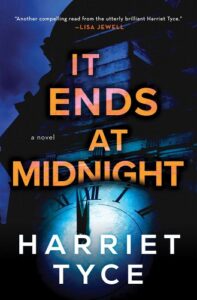Parties are terrible at the best of times. So much hope and anticipation is heaped onto them, they can never live up to the pressure, collapsing into tears and piles of vomit. Not only the teenage ones, either… The preparation is the best part, when hope still springs eternal as the canapés come warm from the oven and the decorations still stick perkily to the wall. Alcohol and adrenalin are a toxic mix. I’m told that amongst Gen Z, hosting is considered a mug’s game, and my own experience of this would lead me to conclude they’ve got that right.
Look at it this way. The host spends hours—days, even—planning, shopping and cooking. Not to mention tablescaping, if it’s a dinner party. The genoise sponge for pudding doesn’t rise, the pommes dauphinoise refuse to cook through however long they’re left in the oven and the lamb is too bloody for at least three of the guests. Not to mention your husband’s colleague’s wife who didn’t bother to tell you that she doesn’t eat fish. There’s too much wine, the food is never ready in time to soak up the alcohol, and there are never enough crisps. I can think of more than one I’ve attended where at least one person ends up drunk and weeping in the bathroom. Normally me.
What I’m thinking about is bread and butter stuff, though, the usual ebb and flow of spousal rows and best friends falling out because one of them flirted drunkenly with the other’s boyfriend. It’s rare they end up as an event I was told about by a friend, where one guest shagged another (both married to other people) on the balcony of the apartment between main course and dessert. Or even more grimly, of another of which I was informed, where group forays from the dinner table to the toilet to take cocaine resulted in the host sexually assaulting a much younger guest.
Parties in crime fiction are a different beast. There’s not a gathering in thrillers that doesn’t end up in total and utter carnage —blood on the wall is the least of your worries.
And we crime readers love it. The huge proliferation of books with Party in the title is a giveaway in itself—I can think of few topics I enjoy more than reading about the extravagant preparations for an elaborate celebration safe in the knowledge that in a few chapters time, all carnage and chaos will have broken loose. The Party by Elizabeth Day, The Party by Lisa Hall, The Party by Robyn Harding, A Death at the Party by Amy Stuart, The Dinner Party by BP Walter, The Last Party by Clare Mackintosh – these are all brilliant examples of the genre. As is Louise Hare’s Harlem After Midnight, opening on the disastrous conclusion of a cocktail party while dodging the ubiquity of the book title.
Reading about parties is the best way to socialise. As a reader you get all the fun of the event and its attendant fall out with none of the hangover or the washing up. Or the police investigation, either. Milestone birthdays seem to carry particular threat. Take The Birthday Party by Laurent Mauvignier translated by Daniel Levin Becker – set deep in rural France, farm owner Patrice plans a surprise for his wife’s fortieth birthday which sets in trail a series of events that leads to a nightmarish conclusion. And The Couples by Lauren Mackenzie, in which another fortieth celebration goes from drug taking and partner swapping to far, far worse. I’m very glad my fiftieth passed off without incident (we will draw a veil over the fact I passed out halfway through my own fortieth and had to be reminded that there was actually a cake).
No social milieu is safe. In fact, the posher the do, the more likely it is that something nasty is lurking in the wings. That’s the message loud and clear that we read from The Great Gatsby by F Scott Fitzgerald, the glamour of the veneer only rendering more stark the emptiness underneath. And there are few weddings that have ended as badly as the Red Wedding in George R.R. Martin’s A Storm of Swords.
I know what you might be thinking—perhaps these parties have all collapsed because it was just one night. Too much focus on only a few hours. Perhaps what would be better would be an event extended over a few days, maybe a reunion of old friends? A series of less formal dinners, a more relaxed environment in a quiet cottage perhaps, somewhere in the countryside? Tell that to the visitors of Chris Brookmyre’s The Cliff House, a hen party on an island that ends up in a man hunt. Or to the bridal party who venture In a Dark Dark Wood by Ruth Ware. Worst of all, the dinner they’re physically unable to leave, at the heart of Thomas Adès’s brilliant opera The Exterminating Angel.
But perhaps what they’ve got wrong is the pedestrian nature of their locations. If the reunion were taken abroad, to somewhere hot and luxurious, surely all murderous feelings would subside, sated with sybaritic living? Anyone who’s watched The White Lotus knows that’s unlikely to be true. A weekend reunion on the Amalfi coast turns to tears in My Husband’s Killer by Laura Marshall. The beauty of the Spanish coastline is not enough to save lives in Nikki Smith’s The Beach Party.
I’ll be turning down all party invitations from now on. I know better. I’ve drawn extensively on personal experience in my writing of It Ends At Midnight, which features no less than three celebrations that lead to bad things happening. A teenage New Year celebration (definitely too much drinking at that one to be wise), another teenage party on a beach (it starts with a bonfire, it ends with the undertaker) and the New Year party itself that ends at midnight with two people falling to their deaths, impaled on railings. Much, much safer to stay in bed.
***


















